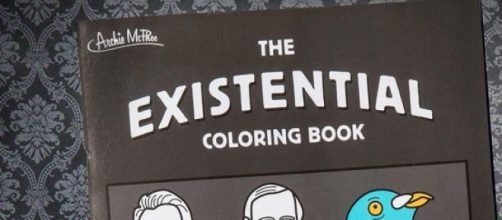Whenever some disturbing and shocking event like the Charlie Hebdo massacre happens some idiot will try to bring-in existentialism somewhere. Usually, this is a classic malapropism. Someone trying to be clever saying existential, when actually they mean external.
The Charlie Hebdo massacre and events in Paris do NOT create an existential dilemma for The West. In fact, quite the reverse.
"We" - The West - feel a sense of unified outrage by the horrors in Paris. Subsequently, the existential fatigue that hangs over The West is lifted, because "we" have a sense of shared unity, a purpose, and an identity. "We" - The West - know who we are when faced with a horror like the one in Paris, because we can create our identity in response to "The Other". "We" are threatened by an external threat; thus, we have a sense of being a we with a purpose and meaning. "We" are not "them", and we are defending our existence by our distinction from "The Other". Our problem is deciding whether "The Other" is merely terrorists, or whether it is Islam.
Now, the events carried out under the name of Islam in Paris this month DO create an existential dilemma for Islam and Muslims. Islam is forced to question itself - what is Islam? If the murderous incidents in Paris were carried out under the name of Islam, what is Islam? Islam does not want to associate with everyone who proclaims to be a follower of the faith; otherwise, by association, Islam becomes a veil for such actions as those carried out against Charlie Hebdo. But, the perpetrators defined themselves as Muslims, so what is a Muslim? Can Muslims and Islam decide who is and who is not a Muslim, and who is/who is not a follower of the faith of Islam? The point is that when Muslims carry out acts that other Muslims wish to condemn, it splinters the identity of what it means to be a Muslim. It poses an existential dilemma for Islam, as there is a schism between two Islams - one the radical Jihadist, and two the non-violent.
Whereas, for The West, there is no existential dilemma, because we are untied in our sense of being a "we", and "we" are facing an external threat, and we can define ourselves, and our values, as something that is not "The Other". Even if The West is not clear what it is, "we" know we are not Islamic Jihadists.

